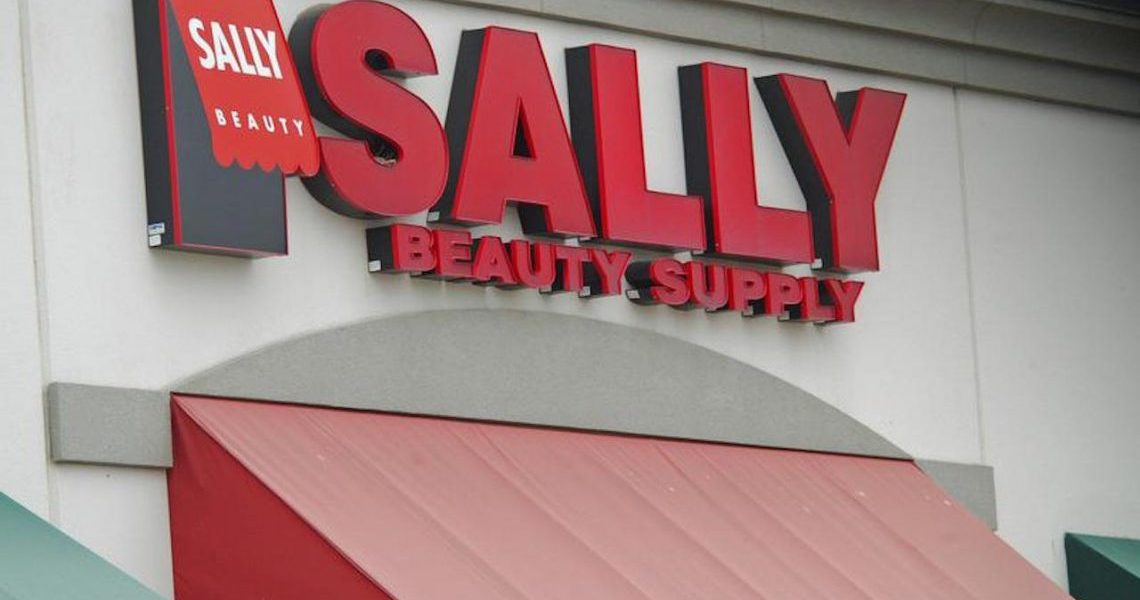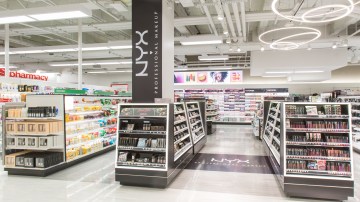Since introducing a DIY beauty focus in 2018, beauty retailer Sally Beauty has found success. Now it’s looking to expand its positioning through new influencer and content creation programs.
Sally Beauty has intentionally built itself as a place for the DIY hair-dye user and beauty maven. With this in mind, the company is expanding its DIY content starting in April, catering to everyone from beginners to expert “DIYers,” as the retailer calls its customers. It also plans to launch a store associate affiliate program and micro-influencer program. Since 2018, Sally Beauty has been undergoing a dramatic transformation by improving in-store experiences, incorporating mobile AR features and developing an incubated SallyCrew group of DIY influencers, among other initiatives.
“We’re building on the strategy we’ve developed over time. The purpose at Sally Beauty is to inspire more colorful, confident and welcoming [beauty],” said Carolyne Guss, group vp of marketing at Sally Beauty. “Our DIY strategies are important because a huge part of it inspires the DIYer and builds a community around them.”
According to Sally Beauty’s first-quarter fiscal year 2022 earnings report in February, consolidated net sales increased 4.7% to $980 million year-over-year with a comparable sales increase of 6.1%. The company operates primarily through two business units, Sally Beauty Supply and Beauty Systems Group. The latter is a network of stores and direct sales consultants selling exclusive professional salon brands to licensed beauty professionals.
Sally Beauty has created a “DIY University” series on its YouTube channel, where it currently has over 41,000 subscribers. DIY University is comprised of several “chapters” of videos, which will be published over the next several months. Chapters cover specific areas like hair anatomy, different hair types and how they factor into hair dye, ingredient and product stories, and various hair dyes. The first chapter, titled “DIY U intro,” was posted on Thursday in the form of seven videos. The second chapter will roll out starting at the end of April and through May. Members of Sally Beauty’s paid influencer group, Sally Crew, like Gregory Patterson (@GregoryPattersonHair; 30,000 Instagram followers), will host these videos. Since February, Sally Beauty has “revamped” its YouTube channel, said Guss. It now ensures the channel includes information on a diverse range of topics, including textured hair, and introduces more storytelling from founder-led brands. TPH from actress Taraji P. Henson was the focus of several videos in January.
“We want to defuse some [anxious] feelings [around at-home hair dye], particularly with a beginner DIYer, and help guide them through the process,” said Guss. “There’s no shortage of content out there, but we want to have a place to house and talk about the basics and then expand into more pro-level content.”
Social media is a significant part of Sally Beauty’s revised content strategy. A new unpaid micro-influencer program called “Sally Insider” will provide free products to 1,000 micro- and nano-influencers who have social followings of 1,000-50,000 people on major social platforms like Instagram. Participants will also be able to provide direct feedback to Sally Beauty on new launches. There is no posting minimum, said Guss. She added that Sally Beauty is looking for a diverse cast of people who are trend-driven and enthusiastic about the DIY beauty and hair-dye spaces.
Though this is the first cohesive micro- and macro-influencer program, Sally Beauty launched Sally Crew in 2020. Within Sally Crew, invited influencers sign a year-long contract with the retailer, receive access to exclusive products and events, are invited to spokesperson opportunities, and are featured on Sally Beauty’s social channels and in marketing materials.
All in-store sales associates are now invited to earn a commission for online purchases through affiliate links, a strategy reminiscent of when retailers like Macy’s wanted to recruit employees as influencers around 2018. There is no follower minimum or explicit expectation for how Sally Beauty products should be promoted, Guss said. E-commerce sales are a lucrative opportunity for Sally Beauty. According to the company’s February earnings report, global e-commerce sales increased 22% year-over-year to $81 million in the first quarter of the fiscal year 2022, making up 8.3% of total sales.
“As at-home beauty continues to evolve, we are hyper-focused on building our community of DIYers. We knew we needed to not only expand our Sally Crew, but to also lean into other beauty experts and create a space for DIY conversation,” said Frances Lukban, vp of content and media strategy at Sally Beauty. “Our evolved influencer strategy sparked the development of our new Associate Affiliate and Sally Insiders programs.”
The third pillar for the DIY strategy is a new in-store program: iPads are now available in the hair-dye section, allowing people to solicit real-time advice and information from licensed cosmetologists. Operating initially as a pilot in the Dallas Fort Worth area, the program will expand to the Northeast beginning in May. Customers will then get an email recap, and cosmetologists will follow up around four days later to check in on a person’s hair-dying experience.
“The notion of DIY is that you’re doing it yourself, but people do need help along the way,” said Guss.




